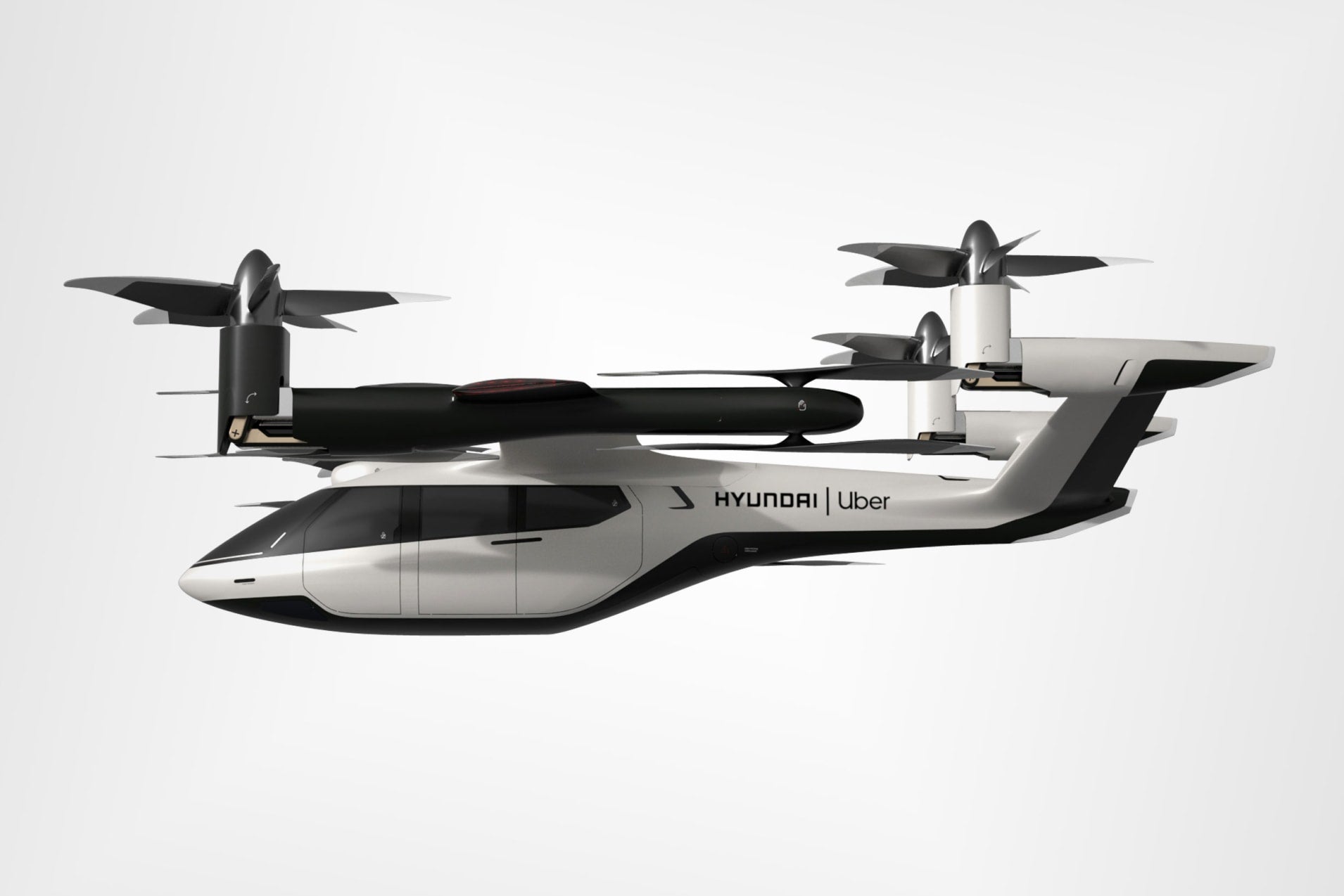Uber and Hyundai plan flying taxis to take off in less than four years
Electric-powered craft will take off and land vertically, carrying four passengers at a cruising speed of up to 180mph

Uber and Hyundai have teamed up to build a fleet of autonomous airborne taxis that they hope will one day dot the skies of major cities.
Uber wants to conduct flight demonstrations of its Elevate service this year with a commercially viable planned for 2023, the ride-hailing firm said on Monday at the CES technology conference in Las Vegas.
A full-scale model of the PAV or “personal air vehicle” is set to be unveiled at the conference this week. The operational version will debut in Dallas, Los Angeles and Melbourne.
The vehicles will initially have a pilot before eventually becoming autonomous, Uber said, without providing a timeline for the changeover.
Hyundai is the first major car company to buy into Uber’s long-held dream to run an airborne taxi service. The South Korean carmaker aims to produce a fully electric-powered craft that will take off and land vertically, carrying four passengers at a cruising speed of up to 180mph.
World's first commercially available flying car
Show all 5The taxis will fly between 1,000 and 2,000 feet off the ground and are equipped with parachutes in case of emergencies.
“Hyundai is our first vehicle partner with experience of manufacturing passenger cars on a global scale,” said Eric Allison, head of Uber Elevate.
“We believe Hyundai has the potential to build Uber Air vehicles at rates unseen in the current aerospace industry, producing high-quality, reliable aircraft at high volumes to drive down passenger costs per trip.”
Hyundai, which is better known for its more conventional mass-market saloons and hatchbacks, claims its new craft will “transform the concept of urban transportation”.
Uber is working with Nasa and a number of other manufacturers to develop the technology required for what the space agency is calling “Urban Air Mobility”.
Uber’s Elevate project already runs helicopter rides for passengers in New York City and is working with Boeing on a separate concept for air taxis.
But the project with Hyundai marks a new evolution because the car giant could produce flying taxis at a rate the aerospace industry could not match, said Eric Allison, the head of Uber Elevate. Such high volume would be needed to make a large-scale network viable, he said.
Any such network is likely to face a host of potential obstacles, including close scrutiny from regulators. The logistics of taking off and landing in dense urban areas will also present problems.
Car manufacturers like Hyundai are having to make big decisions as changing consumer habits rock the auto industry. The shift away from fossil fuel powered cars has come at the same time as people in urban areas increasingly ditch the concept of owning a car, opting instead to hire or share one instead.
Subscribe to Independent Premium to bookmark this article
Want to bookmark your favourite articles and stories to read or reference later? Start your Independent Premium subscription today.

Join our commenting forum
Join thought-provoking conversations, follow other Independent readers and see their replies